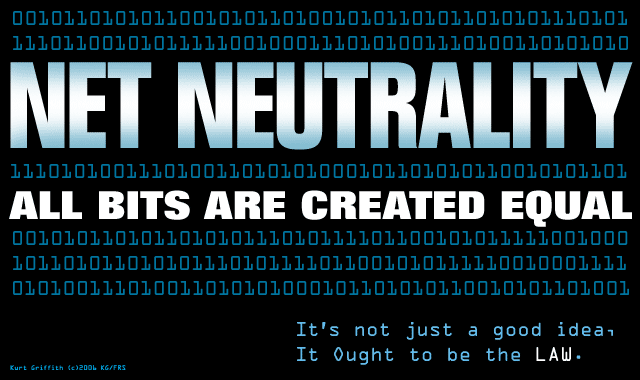
On both sides of the debate over net neutrality, great concerns arise. Competition leads to lower prices because companies want your service so they will offer their goods at a lower price than the next guy. With internet in the United States, it does not work that way. Huge corporate giants control much of the entire United States broadband internet access which makes internet access in the U.S. expensive. "The corporate giants are also vigorously fighting to stop cities and towns from building 'Community Internet' systems -- affordable, high-speed broadband services funded in part by community groups and municipalities -- even in places where the cable and DSL companies themselves don't offer service" (S. Turner). Those in favor of net neutrality are concerned that one day, internet service may just be too expensive and they will have to make a sacrifice to not have something they have become reliant on. On the other hand, I understand the business part of the spectrum. Every business hopes that they will one day rise to the top and be the leading manufacturer of a certain product however, where I draw the line between smart business and greed is when a person with an average income in the United States cannot afford something that they know should be more affordable.
The internet essentially as it is now is a place where anyone can create something and share it will millions of people. I feel the topic of net neutrality relates somewhat to open source software. Both controversial, but have gotten some software and the internet to where they are now. I feel that although the internet may today, not be 100% net neutral, it is at a completely satisfying medium. One internet service provider does not control priority over files traveling over the internet. In a Wikipedia article Bob Kahn was quoted in saying, "If the goal is to encourage people to build new capabilities, then the party that takes the lead in building that new capability, is probably only going to have it on their net to start with and its probably not going to be on anybody else's net."

I believe in net neutrality. If it has gotten the internet to the magnificent electronic entity that it is today, I cannot imagine what it will be like in the future. One can only wonder that if the internet were to become not net neutral, if advancements would be made to better it to the degree and speed they have done so in the past.
References:
Jones, K. (2007, March, 16). Net Neutrality Debate Remains Contentious. Information Week, Retrieved April 12, 2007, from http://www.informationweek.com/shared/printableArticle.jhtml?articleID=198001557
Network neutrality. (2007, April 11). In Wikipedia, The Free Encyclopedia. Retrieved 00:06, April 13, 2007, from http://en.wikipedia.org/w/index.php?title=Network_neutrality&oldid=122005930
Turner, S. (2007). Free American broadband!. Salon, Retrieved April 12, 2007, from http://dir.salon.com/story/tech/feature/2005/10/18/broadband/index.html
1 comment:
Please do not hotlink my Uncle Sam Net Neutrality image. You are free to save it to your server and post it to your blog, as long as you reference and link it to this post:
http://www.miniatureamericanflags.com/?cat=23
Post a Comment